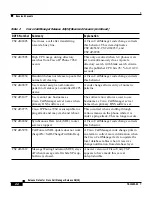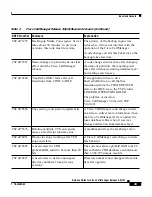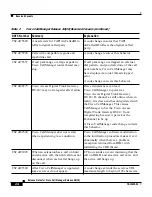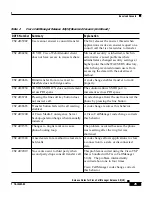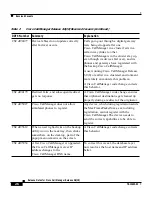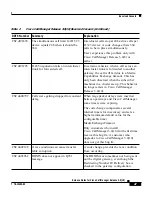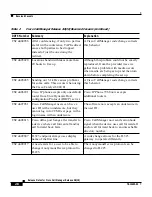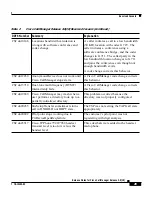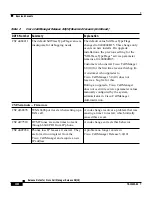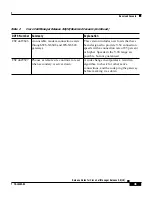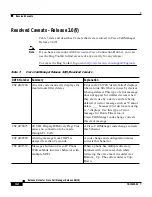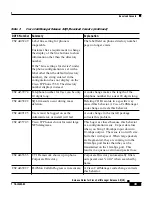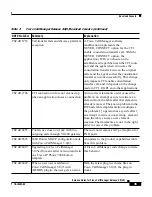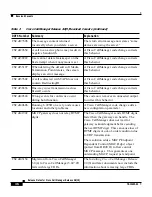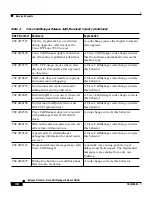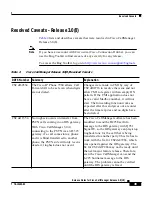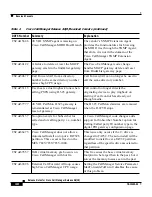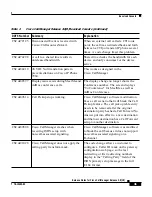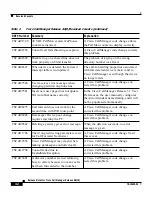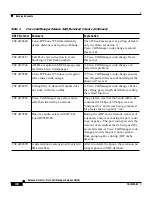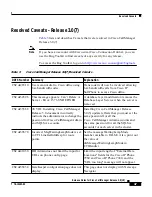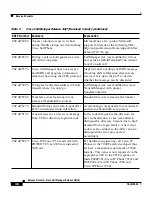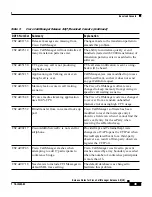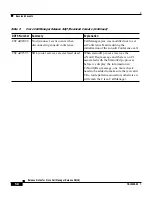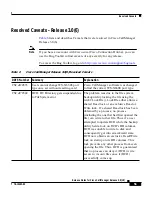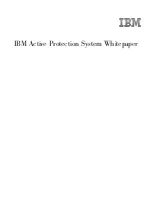
Resolved Caveats
36
Release Notes for Cisco CallManager Release 3.0(10)
78-13493-02
CSCdt27696
The message content returned
incorrectly when you delete a server.
The return error message now states “some
devices are using the server.”
CSCdt29654
A call to an active phone may result in
negative bandwidth.
A Cisco CallManager code change corrects
this behavior.
CSCdt30922
User cannot delete Gatekeeper on the
first attempt when Anonymous is set.
A Cisco CallManager code change corrects
this behavior.
CSCdt33107
When deleting the default soft Media
Termination Point deletes, the screen
displays an error message.
A Cisco CallManager code change corrects
this behavior.
CSCdt37602
A call redirected with TAPI does not
contain RedirectingID.
A Cisco CallManager code change corrects
this behavior.
CSCdt38836
One-way voice transmission across
firewall occurs.
A Cisco CallManager code change corrects
this behavior.
CSCdt40324
Wrong events for conference occur
during hold function.
The code now removes an unneeded output
to correct this behavior.
CSCdt40606
Running h.225D on every node causes
locations and other problems.
A Cisco CallManager code change adds a
new configuration parameter.
CSCdt41902
MGCP gateway does not relay DTMF
digits.
The Cisco CallManager sends DTMF digits
faster than the gateway can handle. The
Cisco CallManager does not wait for
gateway acknowledgment before sending
the next DTMF digit. This can cause loss of
DTMF digits or out-of-order condition due
to UDP transmission.
The resolution adds a MGCP Endpoint
Dependent Control (MGCPedpc) object
(ported from BRAVO) to flow control
MGCP messages. This guarantees one
outstanding MGCP request per endpoint.
CSCdt43154
Migration from Cisco CallManager
3.0(4) to Cisco CallManager 3.0(7.2f)
fails with large CDRs.
The Installing Cisco CallManager Release
3.0(8) and later documents now include the
information about removing large CDRs.
Table 3
Cisco CallManager Release 3.0(9) Resolved Caveats (continued)
DDTS Number Summary
Explanation

